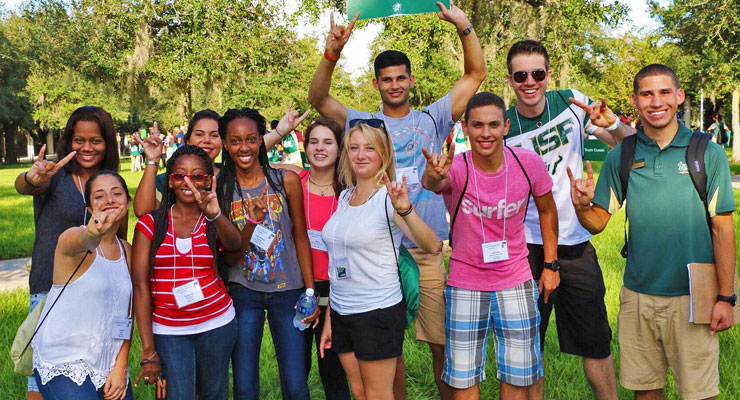Tips to Make the Most Out of a College Fair
By Joe Emerson | Last Updated: Mar 5, 2025

If picking a college is on your to-do list, the item appearing right before it on that list should be “college fairs.” The fairs are great tools for building a target list or narrowing your choices. They may affirm or change your feelings for a dream school, unexpectedly lead you to the school of your dreams, or match you with one that’s a perfect fit. Regardless of where you are in the hunt, these tips to make the most out of a college fair can help.

Finding the Right College Fair
If you have an eye on in-state schools, a regional fair can meet your needs. If your search is wide open, there are national fairs, too. The more you know about the education you want and the setting, the easier it will be to make the limited number of fairs you can attend serve your purposes.
Specialized college fairs include those featuring schools with religious affiliation, those with a history of serving particular demographics, and those with an academic focus such as visual and performing arts or science, technology, engineering, and mathematics (STEM).
Your college counselor is a good source for details on regional fairs. Another option is a web search. Type “college fair” and add your state name.
Internet searches yield hundreds of college fair resources vying to help you choose the type of school you want, including:
- The National Association for College Admission Counseling (NACAC) website, with nearly 100 National College Fairs annually at locations across the country, some featuring up to 400 schools.
- The Go to College Fairs site, which lets you tailor your search by state or even nation.
- And the College Fair Guide site, which touts itself as being “your guide.”
There also are tons of virtual college fair options, and many include live interaction with school representatives.
Preparing for a College Fair
Planning for a college fair? The goal is to learn as much as possible about the schools on your radar and perhaps add some. That means wise use of time, so get there early. Also:
- Scan the list of participating schools and know your targets.
- Get your hands on a floor plan, so you can hit your targets efficiently.
- Get details on workshops, other activities, and booths you might want to explore.
- Prepare thoughtful questions that you can use on all your targets. Comparing answers can be useful. Focus questions on things insiders such as admissions officers can answer.
- Take a folder or some other means of organizing the paperwork you accumulate.
- Prep for an exchange of paperwork. You’ll be hauling home pamphlets and business cards and leaving résumés and stickers with the personal information schools request.
The stickers can save you a lot of time that would be spent filling out cards with personal information. It should have your full name, address, phone number(s), email addresses, high school and graduation date, major or academic interests, and anything else relevant to your interest in the school.

College Fair Day Game Plan
Show up early, rested, appropriately dressed, and ready to methodically make maximum use of available resources. Be ready to politely engage with college representatives, keeping in mind that the people you chat with eventually could be screening your college applications.
Don’t waste your time or theirs. It’s hard to make an indelible impression when you only have a few minutes to do it and are among hundreds of people the reps will encounter. Keep it simple and to the point, and try to be among the first people each rep sees – when both of you are fresh.
And take notes. Take a moment after each encounter to jot down key observations and things you want to know more about.
The goal is to hit all your targets and have time left to explore options you haven’t considered. And be sure to:
- Keep an open mind. A school you’ve never heard of might be a perfect fit.
- Follow up. Use the information you get to narrow your target list, and keep researching your remaining targets.
- Consider thank-you notes. It’s a good way to reconnect with reps from your top choices.
Once that target list is short enough, you should begin seriously engaging with the schools’ admissions officers. Take a campus tour of the colleges you liked the most to learn more about the schools and to show your interest.
The USF Office of Admissions is always ready to answer questions. You can contact us online or by phone at 813-974-3350

